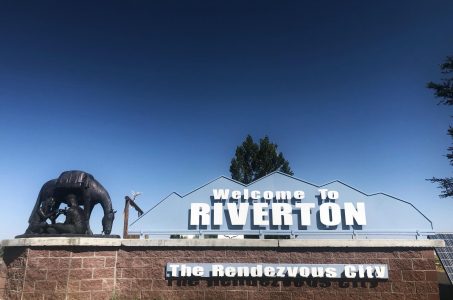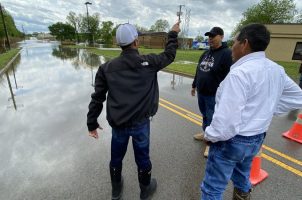Tribal Casinos Cash-Strapped By Outbreak, At Risk For Permanently Closing
Posted on: April 9, 2020, 10:45h.
Last updated on: April 10, 2020, 09:12h.
The shuttering of US tribal gaming properties because of the coronavirus pandemic is leading to economic anxiety for the tribes, their workers and communities, as well as the states in which they operate, several experts said.

Some tribes have kept employees on the payroll during the initial shutdown, and many have donated perishable food to the needy. Nationally, tribal gaming operators asked the federal government for an $18 billion relief package.
When reached for comment, Oklahoma-based attorney Gary Pitchlynn, who also teaches law at the University of Oklahoma, said current closures “will have harsh financial consequences for the … tribes just as it does for most of the rest of our nation.” The tribes with insufficient cash reserves are most at risk.
Tribes that have built up significant reserves will make it through this best. But even they will have significant financial losses and their plans have to be adjusted accordingly,” Pitchlynn told Casino.org. “I fear most for those tribes without reserves, particularly where they have undertaken significant new debt for construction or remodeling in the recent months, or where they have created dependence on per capita payments based on the historical earnings experience that is now shut down.”
Also, tribes paying their workers while casinos are closed cannot continue indefinitely. “Many tribes have attempted to alleviate what they can for their employees in the weight of financial stress. But without a current revenue stream, that can only go on for so long,” Pitchlynn said.
Attorney Rory E. Dilweg, a former chief counsel for the Oneida Tribe of Indians of Wisconsin who now is a partner at Colorado’s Berg Hill Greenleaf Ruscitti, said that most tribal casinos keep enough money on hand to reopen when circumstances allow.
“Casino executives and managers know precisely how much money they need to ramp up for reopening and are planning accordingly,” Dilweg told Casino.org. “In order to reopen, the casinos will have to be able to retain all or most of their employees and have sufficient cash to cover all of the bets once gaming starts.”
The Rev. Richard McGowan, a finance professor at Boston College who studies national gambling trends, added that tribal casinos “with huge debts due to building hotels, etc. will obviously have trouble paying off those debts. Also, the typical small tribal casinos in the Midwest and Southwest will also have a difficult time of survival.”
“The two large Connecticut tribal casinos might be able to withstand this downturn,” McGowan added about Foxwoods and Mohegan Sun. “But they, too, have a huge amount of debt.”
If outside funds are needed, where can tribes go to for help?
From what little I have seen, the feds do not seem interested in the plight of the tribes or their casinos,” Gary Pitchlynn said. “I am thinking that the most likely scenario is that tribes will negotiate with their lenders for some form of interest or penalty forgiveness during this time, or that perhaps Congress can be persuaded to assist in the restructuring of debt or guaranteeing of the debt in order to obtain some forbearance from the lenders until the facilities are up and running again.”
The Rev. Richard McGowan added that tribal casinos can make the case they provide jobs for many people, so “it would appear that they might be a very good candidate” for government funds.
Tribal Casinos Could Face Long Ramp-Up
Jef Bauer, general manager of California’s Augustine Casino, which is owned by the Augustine Band of Cahuilla Indians, said opening any time after June 1 will be devastating for tribes, the Palm Springs Desert Sun reported. He compared the reopening costs to start-up costs for a large gaming operation.
“You’re basically going to have to fire up all the engines — marketing, hiring,” Bauer said told the newspaper. “There could be all kinds of costs that you wouldn’t even normally have during that time, and your revenues are coming in low. So, the expenses will just be crippling for some businesses, if we’re not able to get this under control soon and get open.”
But Gary Pitchlynn says tribes should be cautious in their reopening plans.
“The reopening date for any casino … should be weighed primarily on the basis of the safety of the public and the labor force, not business efficacy,” Pitchlynn said. “We depend largely on our reputation for service, and any premature opening that might lead to new surges of the virus in our area could be devastating to the goodwill and trust that we need to protect.”
What is the long-term outlook for tribal gaming?
“I do not see tribal gaming going away because of this epidemic. But it may take a while for the industry to get back on pace,” Pitchlynn said. Dilweg further predicts there could be a serious issue relating to employee retention.
“Once casinos have to furlough employees without pay, there is no guarantee those employees will be available to the casinos for reopening,” Dilweg said. “If casinos have to bring in a number of new employees, those employees will have to be properly investigated and licensed before they can begin work.”
Indian Country at Risk
There is also a concern about the impact casino closures will have on the communities in which they operate. “Many Indian reservations and tribal casinos are located in some of the most remote and destitute areas of the United States,” Dilweg points out.
“Tribal casinos are the largest revenue source and employer in many parts of Indian Country and rural areas of the United States,” he added. “Without that employment and revenue, recovery in these areas could be devastated. Tribes and their businesses, including casinos, should be eligible for and should receive assistance from the federal government.”
Also, the Rev. Richard McGowan points out state governments would like the tax revenue that comes with the tribal gaming operations. Often, it funds key programs like schools.
Many tribal casinos also may have to “severely curtail” the amount of money they give to their tribes from the shutdown, McGowan said. As a result, the tribes will have cutbacks.
“Unless they [the tribes] used the casino funds to diversify their economies, they will be in deep trouble,” McGowan said.
Related News Articles
Most Popular
LOST VEGAS: The Foster Brooks Robot at MGM Grand
Bally’s Sets Date for Tropicana Las Vegas Implosion & Party
Most Commented
-
VEGAS MYTHS RE-BUSTED: You Don’t Have to Pay Resort Fees
— August 2, 2024 — 16 Comments -
VEGAS MYTHS RE-BUSTED: Elvis Was a Straight-Up Racist
— August 9, 2024 — 11 Comments -
ANTI-SOCIAL BEHAVIOR: Vegas Casino Buffet Stunt in Poor Taste Goes Viral
— August 16, 2024 — 7 Comments -
VEGAS MYTHS RE-BUSTED: The Strip Tried Appealing to Families and Failed
— August 23, 2024 — 7 Comments
















Last Comment ( 1 )
I believe that Indian gaming shout come to an end. It was a way for Indians to show their concerns for their own people. The money never was theirs to do as they pleased. This would be a good lesson to them, and they will once again think about bey independent, and keeping their hands in their own pockets. Very ungrateful and greed caused too much pain and suffering to someone whom did want to see if their lives better, but not anymore.